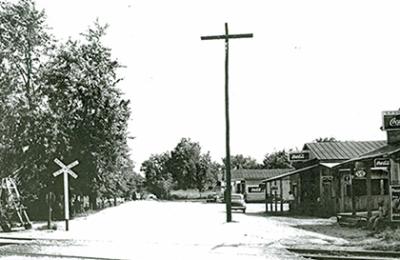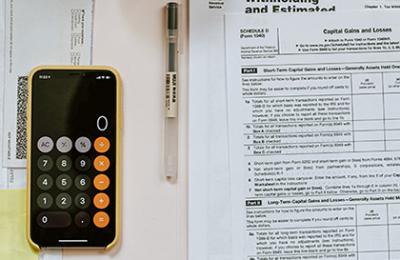



Town of Trinity
Our Origins
Originally occupied by Cherokee Indians, English settlers arrived from Tennessee, Virginia, and the Carolinas around 1807 to the area now known as Trinity. The many fresh water springs and rich, fertile soil made this area very appealing.
Early plantation owners included Fennel family, as well as the the Liles and the Minors. Several generations of the Fennels lived in the area, and because of their influence the town was initially called "FENNEL'S TURNOUT" until it was officially named Trinity in the 1840's. The name was symbolic of the composition of the town - a general store, Post Office and Depot. Three structures unified into one community - A TRINITY.
Trinity has a very rich history of its own. First incorporated on May 9th of 1880, Trinity lost its charter and had to be re-incorporated on March 5th of 1901. At this time the town only had a one mile radius.
During the 1930's Trinity lost its charter and was once again unincorporated. Clyde McRea, Wallace Meadows, and Mayor Garth Kimbrel were instrumental in the re-incorporation of Trinity on June 28th of 1948.
Trinity's population at the turn of the century was 191. In 1985 - only thirty-five years later - the population had increased to 1,441, an increase of over 700%. As of 2010, the population was 2,095. Today this number continues to climb as people move to the peaceful valleys of the Trinity area.
Our Culture
The earlier settlers were interested in education, Christian living, and cultural activities. Since in the late 1800's there were no public schools, the only schooling options were private schools or Lile University School. The Trinity High School was built in 1908, remaining open until West Morgan School was built in 1962. Today, West Morgan School is considered one of the best schools in the area.
Throughout the years, people from many Christian religions have come to Trinity to build their church home. The Episcopalians worshipped in Trinity until their building was destroyed by a cyclone in 1910. The Methodists established their church around 1820 and started the Summer Seat Campground in 1827. The Baptists started their Church in 1922 until it ceased in 1926. After meeting in the Old Trinity School from 1944 to 1947, they were able to rebuild their Church. In 1946 the followers of the Church of Christ built their Church on N. Seneca. Even now these Christian communities co-exist in fellowship and Christian lifestyle.
The Trinity Post Office established in 1848, was unable to continue business and closed in 1853. When the Post Office was re-established in 1866, the town became known as "Trinity Station". In 1903 it reverted back to its original name of Trinity.
Industry and Agriculture
In 1830, the first railroad built in the state of Alabama connected a point on the Tennessee River (now Sheffield) to Tuscumbia, Alabama - a distance of less than two miles. But with many local valley planters and some 87,000 bales of cotton, the residents of Trinity were in desperate need of transport. Later that year, work began on the 43 miles of railways that would run from Tuscumbia through Trinity and into Decatur. This was completed in 1836. A depot was built on Col. James Fennel's estate to serve the town of Trinity and its local farmers.
The trains would transport cotton, also picking up coal and fresh water piped down from the mountain in Trinity. By 1915 there were so many cotton farmers in this area that Trinity built its very own cotton gin.
Some early settlers, the Kimbrell's (Kimball) operated a Stagecoach Hotel on Hwy. 20, near the Quarry. The Quarry was also owned by Col. James Fennell. This Quarry provided much granite. Granite from this Quarry was carved out and carried to the State Bank Building and used to build the five columns on the front of the building.
From 1948-1964 with Garth Kimbrel as the Mayor, the town of Trinity experienced a period of redevelopment and growth. Many town roads were paved, a water supply system was created, and the Joe Wheeler Dam began making electricity - a utility which they still use today.
A Place in History
Along with Trinity's rich history and bountiful surroundings, Trinity was involved in the forming of our country as we know it and was involved in the Civil War. The first recorded combat took place July 24th of 1862 followed by a large battle the following day which included the neighboring City of Courtland. On August 22nd, 1862 another skirmish took place between the 7th Illinois Cavalry, under the command of S. F. Lee and Roddey's Rebel Cavalry. When the battle was done, many men were killed or wounded and many prisoners taken.
On A Lighter Note
One of the most popular places in the town of Trinity was Seneca Springs. Seneca Springs was where the teenagers would go to swim in the springs and dance in the old dance hall, listening to the old juke box as it played their favorite tunes. Trinity, Yesterday, Today and Tomorrow, HOME!
